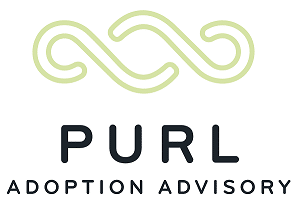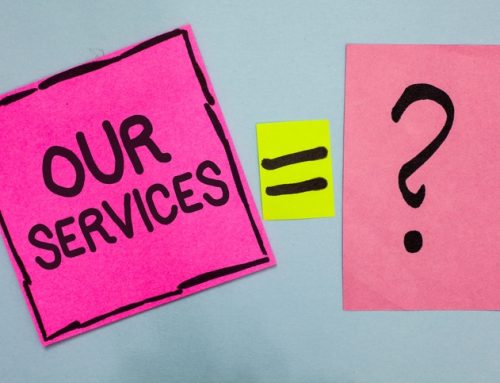
What is a Post Adoption Contact Agreement?
If you are considering growing your family through domestic adoption, you should be aware of the term and existence of what is known as a Post Adoption Contact Agreement (also known as “PACA”). A PACA is an agreement between birth families and adoptive families as to what the contact will look like between the parties after the placement of a child for adoption. The purpose of such an agreement is to set forth the nature of the contact (letters, emails, telephone/video calls, visits) the frequency of that contact, and the period that contact will continue pursuant to that contract, amongst other details. Note that PACAs are not legally enforceable in every state, but can be made as a good faith agreement even if not enforceable in court. If these are done well, they can lead to fewer disagreements and fewer hurt feelings between the parties as to the openness of the adoption in the future, as families have a better understanding of what the other party to the agreement expects. They typically indicate the minimum amount of contact acceptable to the parties, they can always do more than what is set forth in the PACA. The topics often included in a PACA are:
- How often visits will take place
- Where visits will take place
- How long visits will last
- Who can attend visits
- How often photos and updates will be provided
- How photos and updates will be provided (through mail, email, a private blog, social media, etc.)
- The exchange of gifts
Who are the parties to a PACA?
The parties to a PACA may vary from jurisdiction to jurisdiction but generally include the birth parent(s) and adoptive parents. The PACA may also include the adoptive child (with certain age requirements), biological siblings of the adoptive child, and other biological relatives, such as grandparents, aunts, uncles, etc. The adoption agency, adoption attorney, or other adoption professional that is working with the expectant mother will typically draft this document, which is then reviewed and revised by the adoptive parents’ attorney with the adoptive parents’ input.
Our recommendation on PACAs
Our Purl Families have received education about the benefits of open adoption and the need for their child to have access to information to answer questions they may have about their background and to help build their identity. We believe open adoption is the gold standard and most beneficial for an adoptee, where it is safe and possible, and believe that adoptive families should honor the agreements they made prior to placement as to the contact post-placement. Even if the parties are in agreement on open adoption at the time of placement, we feel that PACAs are a necessary document in every adoption so that both adoptive families and birth families have a basis for, and an expectation of, what to expect contact to look like going forward. We believe that each state should enact laws making these agreements enforceable, or that a federal law governing the enforceability of PACAs is enacted in the future.
More information on PACAs
More information on PACAs can be found at the Child Welfare Information Gateway, here, along with the discussion from the Academy of Adoption and Assisted Reproduction website. In order to figure out if PACAs are enforceable in your state, here is a summary of the law in each state on PACAs prepared by the National Council for Adoption.
The steps necessary to make a PACA enforceable, in states where the laws allow
In most states where PACAs are legally enforceable, once the birth families and adoptive parents agree to the terms of the PACA, the agreement must be approved by the court. The judge will only approve the agreement if he or she decides that enforcing the agreement will be “in the best interest of the child”. Once the agreement is approved by the court and the adoption is finalized, the birth parents and adoptive parents have the right to seek court enforcement of the agreement. This means that if the adoptive parents refuse to honor the terms of the PACA, the birth parent has the right to go to court to seek enforcement of the agreement and its terms. While the failure or refusal by the adoptive parents to comply with the PACA is usually not a basis for setting aside the adoption decree itself, the court has the power to hold the adoptive parents in contempt if they refuse to honor the agreement. The court also has the authority to modify or set aside the PACA, but it can typically only set it aside if continuing the contact is not in the child’s best interest.
We hope that this has helped you better understand PACAs. We encourage you to talk to the adoption professional you are working with in your adoption about a PACA and make sure you have one in your adoption. Even if it is not enforceable in your state, we recommend the parties enter into a written, formal agreement about the expectations of the minimum amount of contact acceptable to the parties going forward At any time, the parties can agree to modify the terms of the PACA to better meet the expectations of the parties at that time.

What is a Post Adoption Contact Agreement?
If you are considering growing your family through domestic adoption, you should be aware of the term and existence of what is known as a Post Adoption Contact Agreement (also known as “PACA”). A PACA is an agreement between birth families and adoptive families as to what the contact will look like between the parties after the placement of a child for adoption. The purpose of such an agreement is to set forth the nature of the contact (letters, emails, telephone/video calls, visits) the frequency of that contact, and the period that contact will continue pursuant to that contract, amongst other details. Note that PACAs are not legally enforceable in every state, but can be made as a good faith agreement even if not enforceable in court. If these are done well, they can lead to fewer disagreements and fewer hurt feelings between the parties as to the openness of the adoption in the future, as families have a better understanding of what the other party to the agreement expects. They typically indicate the minimum amount of contact acceptable to the parties, they can always do more than what is set forth in the PACA. The topics often included in a PACA are:
- How often visits will take place
- Where visits will take place
- How long visits will last
- Who can attend visits
- How often photos and updates will be provided
- How photos and updates will be provided (through mail, email, a private blog, social media, etc.)
- The exchange of gifts
Who are the parties to a PACA?
The parties to a PACA may vary from jurisdiction to jurisdiction but generally include the birth parent(s) and adoptive parents. The PACA may also include the adoptive child (with certain age requirements), biological siblings of the adoptive child, and other biological relatives, such as grandparents, aunts, uncles, etc. The adoption agency, adoption attorney, or other adoption professional that is working with the expectant mother will typically draft this document, which is then reviewed and revised by the adoptive parents’ attorney with the adoptive parents’ input.
Our recommendation on PACAs
Our Purl Families have received education about the benefits of open adoption and the need for their child to have access to information to answer questions they may have about their background and to help build their identity. We believe open adoption is the gold standard and most beneficial for an adoptee, where it is safe and possible, and believe that adoptive families should honor the agreements they made prior to placement as to the contact post-placement. Even if the parties are in agreement on open adoption at the time of placement, we feel that PACAs are a necessary document in every adoption so that both adoptive families and birth families have a basis for, and an expectation of, what to expect contact to look like going forward. We believe that each state should enact laws making these agreements enforceable, or that a federal law governing the enforceability of PACAs is enacted in the future.
More information on PACAs
More information on PACAs can be found at the Child Welfare Information Gateway, here, along with the discussion from the Academy of Adoption and Assisted Reproduction website. In order to figure out if PACAs are enforceable in your state, here is a summary of the law in each state on PACAs prepared by the National Council for Adoption.
The steps necessary to make a PACA enforceable, in states where the laws allow
In most states where PACAs are legally enforceable, once the birth families and adoptive parents agree to the terms of the PACA, the agreement must be approved by the court. The judge will only approve the agreement if he or she decides that enforcing the agreement will be “in the best interest of the child”. Once the agreement is approved by the court and the adoption is finalized, the birth parents and adoptive parents have the right to seek court enforcement of the agreement. This means that if the adoptive parents refuse to honor the terms of the PACA, the birth parent has the right to go to court to seek enforcement of the agreement and its terms. While the failure or refusal by the adoptive parents to comply with the PACA is usually not a basis for setting aside the adoption decree itself, the court has the power to hold the adoptive parents in contempt if they refuse to honor the agreement. The court also has the authority to modify or set aside the PACA, but it can typically only set it aside if continuing the contact is not in the child’s best interest.
We hope that this has helped you better understand PACAs. We encourage you to talk to the adoption professional you are working with in your adoption about a PACA and make sure you have one in your adoption. Even if it is not enforceable in your state, we recommend the parties enter into a written, formal agreement about the expectations of the minimum amount of contact acceptable to the parties going forward At any time, the parties can agree to modify the terms of the PACA to better meet the expectations of the parties at that time.



